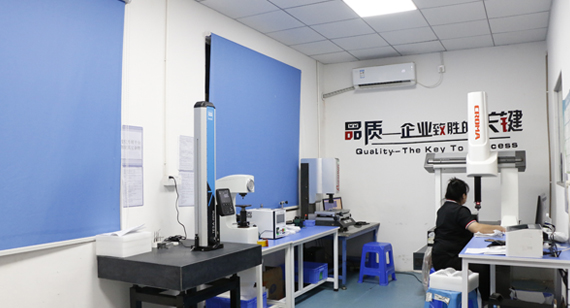15 years one-stop China custom CNC machining parts factory

Hey there I’m VMT Sam!
With 25 years of CNC machining experience we are committed to helping clients overcome 10000 complex part-processing challenges all to contribute to a better life through intelligent manufacturing. Contact us now
 119 |
Published by VMT at Jan 16 2024
119 |
Published by VMT at Jan 16 2024
Introduction:
In the manufacturing industry, selecting the right supplier for CNC machined parts is crucial for ensuring product quality, reducing production costs, and enhancing production efficiency. This becomes even more critical in scenarios requiring large-scale production, where the CNC machining capability and bulk production satisfaction of suppliers play pivotal roles. This article explores how to assess the CNC machining capability and bulk production satisfaction of suppliers for CNC machined parts.

I. Evaluating CNC Machining Capability of Parts Suppliers:
1. Equipment and Technological Proficiency:
Assess the supplier's CNC machining equipment models, quantity, and technological proficiency. The precision, processing range, and level of automation in the equipment directly impact the quality of machined parts and production efficiency. Suppliers should possess advanced CNC machining equipment capable of meeting various requirements for complex parts.
2. Process and Technical Strength:
Ensure that suppliers have well-established processes and technical strength. This includes the ability to develop rational machining plans based on customer requirements, solve technical challenges, and utilize advanced machining technologies. Suppliers should be familiar with the processing characteristics of various materials, providing professional technical support and solutions.
Evaluate whether the supplier has an effective quality assurance system. This involves rigorous quality control and testing methods to ensure the stability and reliability of machined part quality. Suppliers should have comprehensive quality inspection equipment and processes for thorough quality checks and control.

4. Production Management Capability:
Assess the supplier's production management capability, including production planning, material management, and production scheduling. Suppliers should demonstrate efficient production planning and scheduling capabilities, ensuring on-time delivery and meeting production demands. Additionally, they should possess effective material management capabilities to ensure a stable supply of raw materials.
5. Personnel Qualifications and Training:
Evaluate the qualifications and skill levels of the supplier's personnel, as these significantly impact CNC machining capability. Ensure that the supplier provides regular skills training for its employees to keep their skills in sync with industry technological developments. Suppliers should have an experienced and technically proficient team capable of handling various complex machining tasks.
6. Experience and Case Studies:
Understand the supplier's experience and past successful case studies in the CNC machining field. Compare the quality and process requirements of similar products to assess the supplier's actual machining capabilities. Suppliers should have a wealth of successful case studies and experiences, offering high-quality CNC machining services.
By thoroughly evaluating these aspects, a comprehensive understanding of the CNC machining capability of parts suppliers can be gained. In practical terms, on-site visits and comparisons from multiple perspectives are recommended to ensure the selection of a suitable CNC machined parts supplier that meets production needs.
II. Batch Production Satisfaction Assessment:
1. Capacity Assessment:
Understand the supplier's equipment capacity and production capability to ensure it has sufficient capacity to meet the demands of large-scale production. Additionally, inquire about any plans for capacity expansion or equipment upgrades to handle future growth.
2. Production Planning and Scheduling:
Assess the supplier's production planning and scheduling capabilities to determine if they can create reasonable production plans based on customer needs and effectively coordinate resources, including materials, equipment, and workforce.
3. Supply Chain Management Capability:
Suppliers should possess strong supply chain management capabilities to ensure a stable supply of raw materials and minimize the risk of material shortages during production, especially crucial for large-scale production.
4. Quality Assurance and Traceability System:
Evaluate whether the supplier has a robust quality assurance and traceability system in place. This is vital for ensuring the stability and traceability of machined part quality, particularly important when dealing with large-scale production to prevent batch quality issues.
5. Environmental and Safety Standards:
Suppliers should comply with relevant environmental regulations and safety standards, ensuring environmental protection and employee safety during the production process. This is particularly critical for industries with specific environmental and safety requirements.
6. Cost and Price Analysis:
Conduct a comprehensive cost and price analysis, evaluating whether the supplier's quotation is reasonable. Consider the cost-effectiveness factors and explore long-term cooperation possibilities to negotiate better pricing and ensure supply chain stability.
7. Cooperation History and Evaluation:
If possible, refer to past cooperation experiences with the supplier to understand their performance, problem-solving capabilities, and cooperation attitude, especially in large-scale production scenarios.
8. Market Research and Analysis:
Conduct market research and analysis to understand the supplier's reputation, competitive position, and market trends. This helps in predicting the supplier's future development dynamics and cooperation prospects.

III. Conclusion:
When selecting CNC machined parts suppliers, a comprehensive assessment of their CNC machining capability and bulk production satisfaction is essential. By delving into aspects such as equipment and technological proficiency, process and technical strength, quality assurance systems, production management capabilities, personnel qualifications and training, experience and case studies, as well as considerations for bulk production satisfaction, manufacturers can make informed decisions. It is recommended to holistically consider these factors, conduct on-site visits, and make thorough comparisons to ensure the selection of a suitable CNC machined parts supplier that can meet the requirements of large-scale production.
Ready To Start Your Next Project?
Get Instant Quote

Request a Free Quote
Send us a message if you have any questions or request a quote. We will get back to you ASAP!